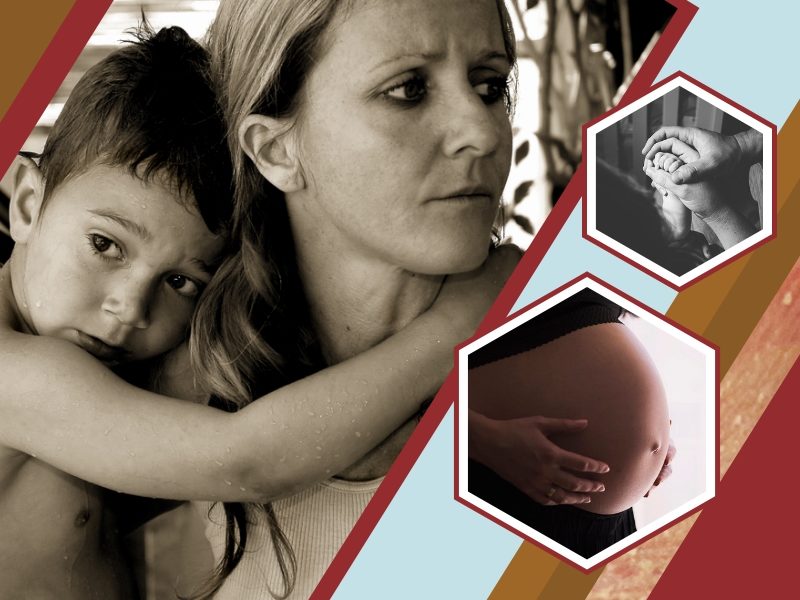Pregnancy and Postpartum Depression

Recent research shows that about 1 in 8 women experience symptoms of postpartum depression. Also, a recent analysis found the rate of depression diagnoses at delivery is increasing and it was seven times higher in the present years.
Having a baby is challenging and every woman deserves support. If you are experiencing emotional changes or think that you may be depressed, make an appointment to talk to your health care provider as soon as possible. Most people get better with treatment and getting help is the best thing you can do for you and your baby.
When Do Symptoms of Postpartum Depression Occur?
Symptoms usually develop within the first few weeks after giving birth, but may begin earlier, during pregnancy, or later up to a year after birth. Women with postpartum depression have intense feelings of sadness, anxiety, or despair that prevent them from being able to do their daily tasks. This condition may be mistaken for baby blues at first, but the symptoms are more intense and last longer, and may eventually interfere with your ability to care for your baby and handle other daily tasks.

Postpartum Depression Symptoms
- Intense irritability and anger
- Fear that you’re not a good mother
- Hopelessness
- Depressed mood or severe mood swings
- Loss of appetite or eating much more than usual
- Excessive crying
- Difficulty bonding with your baby
- Diminished ability to think clearly, concentrate or make decisions
- Withdrawing from family and friends
- Inability to sleep or sleeping too much
- Overwhelming fatigue or loss of energy
- Reduced interest and pleasure in activities you used to enjoy
- Recurrent thoughts of death or suicide
- Feelings of worthlessness, shame, guilt, or inadequacy
- Restlessness
- Severe anxiety and panic attacks
- Thoughts of harming yourself or your baby
Can Postpartum Depression Be Prevented Or Avoided?
Postpartum depression cannot be prevented or avoided. However, if you have a history of depression or postpartum depression after giving birth to other children, you can prepare for it by keeping your mind and body healthy. Eat healthy during your pregnancy, exercise, and learn stress reduction strategies. Once your baby is born, stay away from alcohol and caffeine. Continue to make healthy lifestyle decisions.
Treatment for Postpartum Depression
Effective depression treatment can include a combination of medication therapy, counseling, and referrals. When discussing medications with your provider, let her or him know if you are pregnant, thinking about becoming pregnant, or breastfeeding. You and your provider can decide if taking medicine while pregnant or breastfeeding is right for you.
See your doctor earlier in your pregnancy or sooner after giving birth if you are worried you will have postpartum depression. Postpartum depression is treated much like any other depression. Support, counseling or talk therapy, and prescription medicines such as antidepressants can help.



